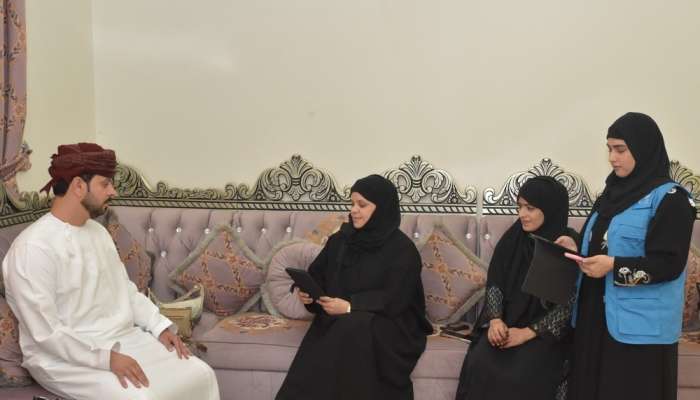
Muscat: In a pivotal move to strengthen public health system in the Sultanate, the Ministry of Health has launched a comprehensive National Survey on Non-Communicable Diseases (NCDs) - a key initiative designed to generate accurate, field-based data that will guide policy reforms, enhance disease prevention, and improve the quality of life for citizens and residents alike.
The nationwide survey, targeting individuals aged 15 and above, seeks to measure the prevalence of NCDs - such as diabetes, hypertension, cardiovascular and kidney diseases - and identify the behavioural and biological risk factors associated with them.
It aims to build a robust national database that will underpin effective prevention strategies and healthcare planning.
“This survey is an evidence-based strategic tool that allows us to assess the true burden of NCDs across all governorates and demographic groups,” said Dr. Shatha Saud Al Ruqaishi, Director of the Non-Communicable Diseases Department at the Ministry of Health.
In her remarks to Oman News Agency, she added: “Its results will guide the development of targeted interventions and strengthen our capacity for evidence-based governance.”
Dr. Al Ruqaishi noted that the Ministry has already used findings from previous surveys to roll out key initiatives, including the national plan for NCD control, the expansion of early screening programmes for diabetes, hypertension, and kidney diseases, and the integration of these services within primary healthcare institutions.
Public awareness campaigns have also been intensified to address modifiable risk factors like smoking, unhealthy diets, and sedentary lifestyles.
“The data we collect will help identify high-risk groups and tailor our response accordingly,” she said.
“Our goal is to reduce the incidence of preventable diseases by empowering individuals and communities with knowledge and access to early detection and care.”
Conducting a survey of this scale comes with challenges. “Logistics in reaching remote areas and ensuring public cooperation remain hurdles,” she said, adding that combating misinformation - especially concerns around data privacy - has required sustained outreach and reassurance.
In this regard, the Ministry has launched an integrated awareness campaign that spans television and radio interviews, multilingual educational videos, Friday sermons, and SMS alerts.
These efforts are designed not only to highlight the importance of the survey but also to encourage voluntary participation.
“Success depends on community involvement,” Dr. Al Ruqaishi emphasised.
“We urge everyone to welcome our field teams, participate in the medical tests, provide accurate information, and encourage others to do the same. All data is confidential, and participation is voluntary - but its value is collective. It will shape equitable and high-quality health services for years to come.”
The Ministry has also taken a proactive approach to counter rumours and address public concerns. “Our official channels, media response teams, and dedicated hotline are open for any inquiries,” she said.
“Transparency and trust are the cornerstones of this effort.”
The survey is being conducted in collaboration with the World Health Organization (WHO), which provides technical expertise and ensures that the methodology aligns with global standards.
It also involves a wide network of national partners, including the National Centre for Statistics and Information (NCSI), the Royal Oman Police (through the National Records Centre), the Ministry of Information, the Ministry of Endowments and Religious Affairs, and other public and private institutions.
Aligned with Oman’s national strategy and international health goals, the survey reinforces the country’s long-term commitment to preventing and managing non-communicable diseases, safeguarding the health of current and future generations.